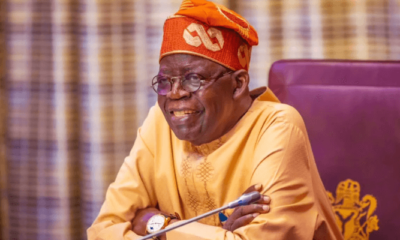Democracy & Governance
Telephone Conversation -By Tunmise Ajeigbe
…divided we fall and united we stand, a progressive nation like Nigeria needs collective effort of her teaming youth, most especially those that have the privileges to attend tertiary institutions. We all know we are the best in Africa, and the best should always be seen in us. For those that find it difficult to get themselves in school, this is my words for you.

Unlike a poem written by Prof Wole Soyinka in the 60’s, titled “Telephone Conversation”, where Baba was trying to narrate his experience after a short while, when he left University of Ibadan, then meet himself abroad for further studies, the distinct African poetic satire exclusively discuss purely on racism. Do not forget this was his life experience, so he shared how he was able to maneuver a white woman who was trying to play tricks on him on a telephone Conversation, when he wanted to get his first accommodation abroad. The white woman, who was also his caretaker asked him, are you a black? Describe the colour of your skin? How does it looks like? He nearly fell into her racist trap, if not for a sudden revelation. (The poem is the public domain) you’ll understand everything.
I will cut my story short here, because, that’s not my gospel in this post. I mistakenly took this picture on a Friday afternoon in Katsina, while having a telephone conversation with my mother. Telling her how the National Youth Service Corps – NYSC scheme has made me to participate in the fight against prejudice in Nigeria.
What is prejudice? I believe several dictionaries have provided some beautiful definitions to that, but I love two mostly. Its definition by “story” and by “law”
1. Prejudice is an opinion that is not based on reasons or actual experience. Example, prejudice against people from different backgrounds.
2. Prejudice is like a harm or injury that results or may result from action or judgment.
As a young man that was born and cultured in the Southwestern part of the country, which is predominantly dominated by Yoruba people, I was told that majority of the Northerners in Nigeria are illiterate, they don’t like going to school. In fact, they are all Aboki, which simply means “my dear friend” in Hausa language. But, whenever a Yoruba man calls a fellow with that name, it always looks abusive and attacking. To show the level of odd stories we grew up to listen to.
I was trying to explain to her that Nigeria is one, irrespective of ethnicity and language. I so much believe that National Youth Service Corps – NYSC scheme as been influencing unity among the teaming youths in Nigeria since 1973.
In conclusion, divided we fall and united we stand, a progressive nation like Nigeria needs collective effort of her teaming youth, most especially those that have the privileges to attend tertiary institutions. We all know we are the best in Africa, and the best should always be seen in us. For those that find it difficult to get themselves in school, this is my words for you. Education is nothing but an avenue to seek and fetch knowledge. Knowledge alone can’t yield progress unless it mixes with understanding and wisdom which can never be dashed out in school. So we are all students in this world.
This is the first part of this article. Watch out for TELEPHONE CONVERSATION 2, where I will talk about;
1. NYSC core objectives
2. Tribalism and ethnocentrism
I. Its differences and similarities
II. How it can affect us as a nation
3. Prejudice and Fairness
4. A just society.









